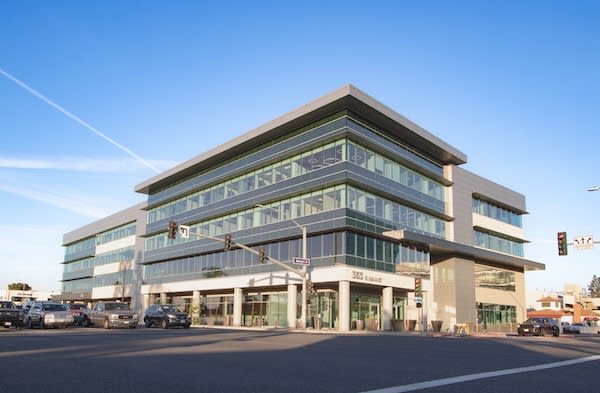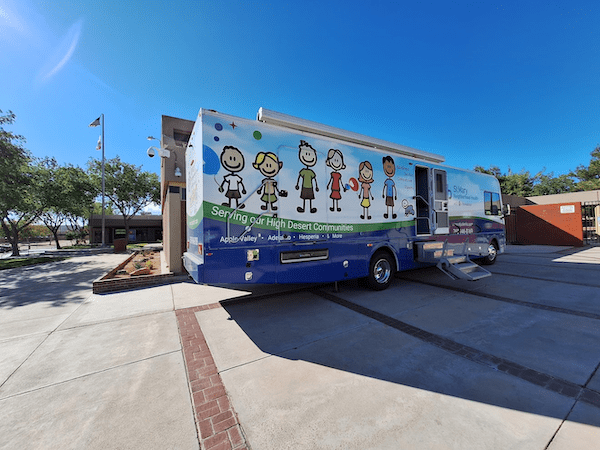Without enough good food, we cannot be well.
Foundations of health | Food insecurity
Food insecurity affects nearly 50 million people nationwide, and millions more globally. Nutritious food is an essential building block for overall health, and lack of access to food can have negative impacts on other aspects of well-being, including mental and emotional health.
The COVID-19 pandemic led to a significant increase in need for food assistance, while at the same time volunteerism declined, leaving many nonprofit organizations short-staffed and under-resourced. Providence was able to help, thanks to our history of partnering with community-based domestic and international organizations that understand how to navigate challenges posed by food insecurity and other barriers to basic needs.
As part of our response to the many challenges brought on or made worse by the pandemic, Providence continues to help increase access to healthy food and collaborate with community partners to better serve under-resourced communities.
Southern California: Collaboration leads to the best use of limited resources
In the fall of 2021, our strategic grantmaking partner, the St. Joseph Community Partnership Fund, launched its Community Recovery and Resilience Initiative to assist nonprofit collaboratives working to relieve the community’s most pressing issues.
With the holiday season around the corner, the fund knew that food banks and other food insecurity organizations would be facing an increase in demand at a time when donations and volunteerism were down. Through the initiative, the fund identified the High Desert Food Collaborative as an ideal partner and one of 12 grantees for funding. The High Desert Food Collaborative is a group of food providers in the High Desert region of Southern California working to maximize available resources.
Amid the pandemic, the collaborative used creativity and ingenuity to overcome challenging circumstances. The group created a central food bank for nonprofit organizations to obtain food at lower cost, partnered with local farmers to cut down on food waste, and prioritized food delivery for seniors, veterans, and others with mobility issues.
Providence in Southern California provided North Valley Caring Services with a $125,000 community benefit grant to connect people in need with health and social services.
Ninety miles west in North Hills, another Providence community partner, North Valley Caring Services, finds new ways to get more nutritious food to people who need it most. In partnership with Food Forward, NVCS is making a concerted effort to offer more than just canned goods to people living with food insecurity. They partner with local farmers to provide fresh fruits and vegetables to nearly 2,000 families per week and help ensure people have the opportunity for a healthier, more balanced diet.
Recognizing that health is about more than just nutrition, NVCS goes beyond food partnerships to take a holistic approach to community health. In 2021, Providence in Southern California provided the organization with a $125,000 community benefit grant to hire a social worker and case manager who connect people with health and social services, in partnership with a local federally qualified health center in the San Fernando Valley. These community health workers coordinate care and services for individuals facing food insecurity and housing instability, and who lack a primary care provider.
Chicamán, Guatemala: Cultivating the land to reduce food insecurity
Our commitment to the common good extends beyond our nation’s borders through the work of our Global and Domestic Engagement Team. The team's collaboration with other like-minded organizations has led to a local partnership in Chicamán, Guatemala, to help increase agricultural skills among interested local families and residents.
In 2021, Providence continued its ongoing partnership with Buena Semilla (Good Seed) to offer community-based information and training on how to build and maintain family gardens. The education portion included strategies to adapt to changes in the environment that have affected local agriculture and growing food. Providence provided funding for indigenous seeds, garden supplies and ongoing monitoring and support. In total, 172 families completed the full learning cycle in 2021 and many of those families grew excess produce to sell, contributing to the economic stability of those living in extreme poverty.
Working with local partners in Chicaman, Guatemala, Providence funded agricultural training for 172 families, and sponsored the distribution of 15,000 pounds of fortified flour to 1,400 families.
The teams saw other opportunities. Providence sponsored the distribution of 15,000 pounds of fortified flour to 1,400 families in Chicamán and supported an animal husbandry program that provided families with chickens for eggs and meat. These programs had a measurable positive impact in villages and communities with high malnutrition and extreme poverty.
Learn more about our global and domestic engagement work.
Food insecurity is directly linked to poorer health outcomes. It often occurs with other life challenges, such as difficult geography, extreme weather and lack of transportation that can make accessing food even harder. Together, we collaborate with local communities to help equip networks of partners with resources they need to not only increase the quantity and quality of available food but also to support interest in agricultural education.




